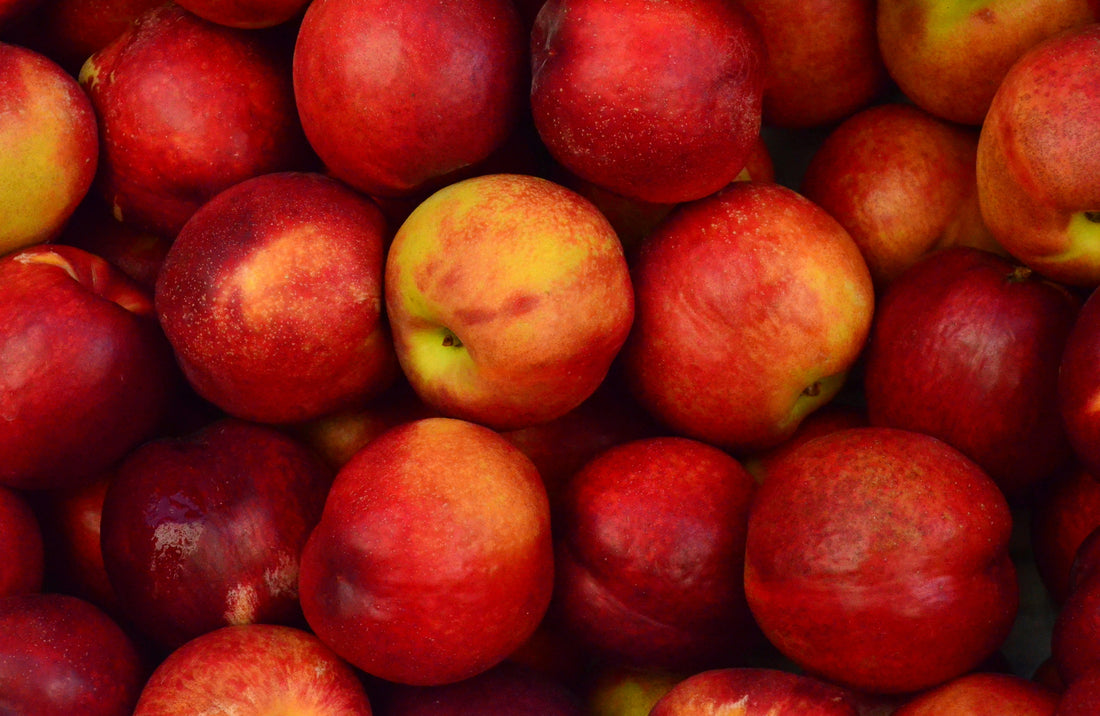Whenever you’re looking for a refreshing, fruity drink to enjoy at any time of the day, apple juice is a great choice! If you’re not a fan of pulpy orange juice, a cold glass of crisp, clear apple juice might be just what the doctor ordered instead.
And speaking of doctors, an apple a day is supposed to keep them away, so shouldn’t the same apply to apple juice? It’s healthy, and nutritious, right? Unfortunately, not quite. One of the problems with this tasty beverage is the apple juice sugar content, which we’ll talk about today.
If you don’t already know how much sugar is in apple juice, brace yourself! It might be more than you’d expect. And, if you’re looking for a lower-calorie alternative, you might want to think twice about sipping that sugar-free apple juice. Stay tuned - we’re about to explain why.
Does Apple Juice Have Sugar?
So, does apple juice have sugar, and if so, what’s the apple juice sugar content, exactly? Yes - there’s definitely sugar in apple juice. The natural sweetness of apple juice comes primarily from the sugars found in apples, including fructose, glucose, and sucrose.
However, most commercial apple juice that you buy at the store doesn’t just contain sugar from apples, it also contains added sugar, to make it even sweeter and extend its shelf life. This added sugar is what really bumps up the calorie count of your apple juice.
How Much Sugar Does Apple Juice Have?
So, how much sugar is in apple juice? It varies - if you’re juicing your own apples and not adding extra sugar, that will contain less sugar than a commercially-produced apple juice that’s made from concentrate with added sugar. Here’s what you need to know about the apple juice sugar content.
Comparing Brands and Types
How much sugar does apple juice have? 100% pure apple juice, with no added sugar, contains around 24 grams of sugar per 8-ounce serving. And that’s a relatively low-sugar apple juice! If there’s that much sugar in apple juice no sugar added, how much added sugar is in apple juice?
Brands that contain added sugar, like Snapple, contain much, much higher levels of sugar. For example, Snapple’s apple juice contains a staggering 47 grams of sugar per serving, of which 42 grams is added sugar - ignoring the sugar content that’s already coming from the apples.
Serving Size Awareness
It’s also important to consider the serving size when you’re looking at how much sugar is in apple juice. A 16-ounce bottle of apple juice may claim to only contain 20 grams of sugar per serving (which is still high!) but when you take a closer look, you see that that’s for an 8-ounce serving.
So, the bottle actually contains twice that much sugar. Brands use these kinds of sneaky tactics all the time to hide their excessively high levels of sugar, and unfortunately, unless you have time to really scrutinize the ingredients, it often works.
How does the apple juice sugar content compare to other drinks? To recap, the sugar in apple juice is around 24 grams per 8 ounces. For reference, the sugar in Coke, sugar in Mountain Dew, and sugar in soda ranges from 26 to 30 grams. So, the apple juice sugar content is lower, just.
While apple juice no sugar added contains less sugar than Coke and other sodas, the sugar in beer, sugar in kombucha, sugar in Vitamin Water, sugar in chai tea latte, and sugar in coconut water are all lower than apple juice.
If you’re interested in learning about the sugar content of your other favorite beverages, check out our guides on:
- Sugar in sweet tea
- Sugar in bubble tea
- Sugar in ginger ale
- Sugar in Gatorade Zero
- Sugar in Kool-Aid
- Sugar in coffee creamer
- Sugar in orange juice
- Sugar in Dr. Pepper
- Sugar in Red Bull
- Sugar in lemonade
You might be surprised when you start digging into just how much sugar these drinks contain!
Why the Apple Juice Sugar Content Matters
So, we’ve talked about how much sugar is in apple juice, but why does the apple juice sugar content actually matter? Because, we already know a lot about sugar, and the damage that too much of it can cause to our health. Here’s a look at why too much sugar can be so harmful.
Impact on Blood Sugar Levels
Apple juice, like other fruit juices, contains a high concentration of natural sugars that can cause a rapid spike in blood sugar levels. This can be particularly concerning if you have diabetes, or you’re at risk of developing the condition.
Unlike whole apples, which contain fiber that helps slow the absorption of sugar, apple juice lacks this fiber, leading to quicker spikes and drops in blood sugar. These spikes can be dangerous, and put unnecessary stress on your body’s tolerance mechanisms.
Weight Management
With sugar comes calories. Consuming high-sugar drinks like apple juice brings a lot of unnecessary, empty calories into your diet, which can lead to weight gain. Liquid calories are less filling than solid foods, making it easy to consume large quantities without feeling satisfied.
Dental Health
The high sugar content in apple juice can also cause some serious damage to your teeth. Sugars in apple juice can feed the bacteria in your mouth, leading to the production of acids that erode tooth enamel and cause cavities. The acidity of apple juice also erodes your tooth enamel over time.
Long-Term Health Risks
There are a number of other long-term health risks that come with too much sugar consumption, including an increased chance of type 2 diabetes, heart disease, and non-alcoholic fatty liver disease. The best way to lower your risk is to monitor and moderate your sugar intake, but how?
Is Sugar-Free Apple Juice a Better Alternative?
After learning how much added sugar is in apple juice, many people turn to sugar-free apple juice as a solution. Unfortunately, sugar-free apple juice isn’t the magic bullet we’re all hoping it is. Sugar-free apple juice is sweetened artificially, with chemicals like aspartame, erythritol, and sucralose (Splenda).
The problem with these artificial sweeteners is that they bring just as many health concerns as sugar itself. Aspartame has frighteningly been linked with a much higher risk of heart attack or stroke, while others have been linked to certain cancers, reproductive issues, and more.
So, although it doesn’t come with the calories, sugar-free apple juice and low-sugar apple juice can be just as harmful for your health. Luckily, we have a safer, healthier, more delicious alternative, and it’s taking the world by storm!
Healthier Alternatives to Add to Your Drink Rotation
Here at Oobli, we don’t think you should have to choose between your health and your favorite beverage. So, we’ve made tasty, low-sugar beverages, sweetened naturally with sweet proteins. Now that you know how much added sugar is in apple juice, why not switch to something safer and healthier?!
Our low-sugar lemonade and low-sugar iced tea contain just a fraction of the sugar that you’ll find in apple juice. And, unlike low-sugar apple juice which is packed full of artificial sweeteners and chemicals, our drinks are sweetened naturally, with sweet proteins found in tropical fruits.
Remember how we said a single 8-ounce serving of apple juice contained around 24 grams of sugar - and that’s without any added sugar? Well, Oobli’s drinks contain just 8 grams of sugar in a 16-ounce can - that’s twice as much beverage with a fraction of the sugar, and no nasty ingredients!
If you’re a chocoholic but don’t like thinking about the sugar in chocolate, you’ll be excited to try our low-sugar chocolate - it’s got the same amazing flavor that you love, but with a fraction of the sugar. It’s high in fiber, keto-friendly, and made from 100% clean ingredients.
Final Thoughts Thoughts on How Much Sugar is in Apple Juice
So, how much sugar does apple juice have? A single 8-ounce serving contains at least 24 grams of sugar, and potentially even more if it has added sugar. While there are apple juice no sugar added options out there, these are usually sweetened artificially, putting your health at risk.
At Oobli, we don’t cut corners! We’ve taken the time to carefully formulate delicious treats from 100% clean ingredients.




